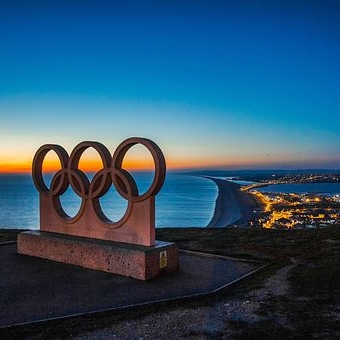
On the face of it, the 2020 Olympics in Tokyo could be a commuter’s nightmare. Tokyo is a vast, sprawling and densely populated metropolis. It is already one of the busiest public transportation hubs in the world, with vast numbers of passengers using a wide array of train lines every day. When you factor in the number of visitors expected to arrive during the Olympics, it seems likely that locals and visitors alike will be affected by the event.
The question is whether anything can be done to avoid this outcome, or at least minimize it. One proposal that has been mooted is to force attendees at Olympic events to disembark one station earlier than the location of the venue, and walk the remaining distance to the venue. This should reduce the level of commuter congestion.
Another proposal is for companies to assign employees flexible working hours during the Olympics. This would reduce the possibility of commuters being unable to arrive at their normal starting time because of overcrowded trains. A related proposal is to allow employees to work from home. The feasibility of this proposal would, of course, depend on what industry the employee works in. A more drastic proposal would be for employees to simply take time off from their jobs for the duration of the Olympics.
These are all realistic proposals, and it seems likely that no single proposal is a magic bullet to solve the potential congestion problem. It is more likely that a combination of several measures can help to alleviate the problem. However, transport issues aren’t the only potential problems that the city faces.
Another problem is accommodating large numbers of visitors from English-speaking countries. Even though cities like Tokyo are already accustomed to large numbers of tourists on a daily basis, the Olympics may be a different kettle of fish, due to the significant increase in raw numbers of visitors, as well as the proportion of first-time visitors to Japan. The Tokyo subway system can resemble a confusing labyrinth for even seasoned commuters, so the difficulty would be magnified for first-time visitors.
It may also be necessary to display additional English language signs at Olympic venues and major sightseeing spots, as well as English notices and signs in stores and restaurants, respectively. This might include not just translations of relevant facts and information, but guides to respecting Japanese customs, such as not walking and eating at the same time in public places.
Finally, a concern that is partly cultural and partly a matter of providing additional English signs, is the current garbage disposal system in Japan. Unless the number of garbage bins in Tokyo is dramatically increased, one could easily imagine overseas visitors becoming frustrated with the lack of such facilities, and disposing of their garbage in incorrect places (for example, throwing burnable trash into the bin for plastic bottles), or worse still, disposing of it on the street.
In summary, there are many potential challenges that Tokyo faces for the duration of the 2020 Olympics. Only time will tell how well it manages to deal with these challenges.
Ming
Vocabulary
moot (v) ? to introduce an idea for discussion
disembark (v) ? to leave transportation at the end of a journey
magic bullet (n) ? a quick and easy solution to a difficult problem
alleviate (v) ? to make something less serious, severe, or painful
different kettle of fish (phrase) ? a situation that is not the same as the one under discussion
labyrinth (n) ? a place with a lot of paths or passages where you can easily become lost
ネイティブ講師と話すならこちら!
英語学習をフルサポート!
マンツーマン&コーチングの英会話教室




















